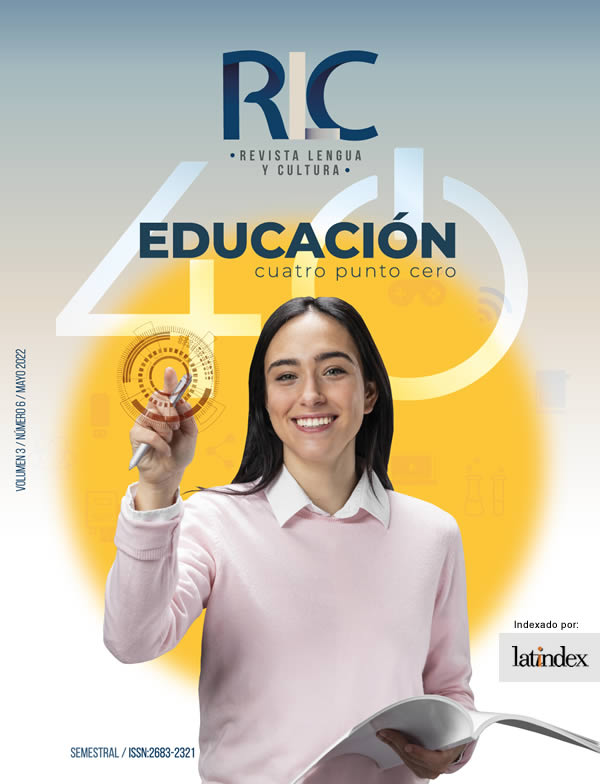Students’ attitude towards the use of Flipped Classroom to teach listening comprehension
Abstract
This study explores students’ perspectives and experiences on the implementation of a flipped classroom model to develop listening comprehension. Within a qualitative data approach, using an open-ended questionnaire, information was collected from three university students chosen through convenience sampling. The data suggest that the implementation of this model improved students’ learning and motivation. By analyzing their responses using a content analysis method, the benefits perceived by the students who experienced the flipped classroom model were identified and grouped into five themes: Peer learning, Better preparation, Improved understanding, Motivation, and Autonomy. The findings of this study may be relevant not only for students but also for educators who are willing to improve their online teaching.
Downloads
References
Abeysekera, L., & Dawson, P. (2015). Motivation and cognitive load in the flipped classroom: definition, rationale and a call for research. Higher education research & development, 34(1), 1-14.
Ahmad, S. Z. (2016). The Flipped Classroom Model to Develop Egyptian EFL Students' Listening Comprehension. English Language Teaching, 9(9), 166-178.
Al-Jawi, F. D. (2010). Teaching the receptive skills. Retrieved June, 17, 2017.
Helgesen, M. (2003). Teaching Listening. In D. Nunan (Ed.), Practical English Language Teaching (pp. 67-86). New York: McGraw-Hill Publishers.
Bergmann, J., & Sams, A. (2012). Flip your classroom: Reach every student in every class every day. International Society for technology in education.
Brown, H. D. (2000). Principles of language learning and teaching (Vol. 4). New York: Longman.
Creswell, J.W. (2013). Qualitative inquiry & research design: choosing among the five approaches. Thousand Oaks, CA: Sage Publications, Inc.
Denzin, N. K., & Lincoln, Y. S. (2005). The Sage handbook of qualitative research.
Etikan, I., Musa, S. A., & Alkassim, R. S. (2016). Comparison of convenience sampling and purposive sampling. American journal of theoretical and applied statistics, 5(1), 1-4.
Fahmi, R., Friatin, L. Y., & Irianti, L. (2020). The Use of Flipped Classroom Model in Reading Comprehension. JALL (Journal Of Applied Linguistics And Literacy), 4(1), 77-94.
Farquhar, J. D. (2012). Case study research for business. Sage.
Forehand, M. (2010). Bloom’s taxonomy. Emerging perspectives on learning, teaching, and technology, 41(4), 47-56.
Forman, J., & Damschroder, L. (2007). Qualitative content analysis. In Empirical methods for bioethics: A primer. Emerald Group Publishing Limited.
Harmer, J. (2001). The practice of English language teaching. London/New York, 401-405.
Kırmızı, Ö., & Kömeç, F. (2019). The impact of the flipped classroom on receptive and productive vocabulary learning. Journal of Language and Linguistic Studies, 15(2), 437-449.
Kumaravadivelu, B. (1994). The postmethod condition:(E) merging strategies for second/foreign language teaching. TESOL quarterly, 28(1), 27-48.
Li, S & Suwanthep, J. (2017). Integration of Flipped Classroom Model for EFL Speaking. International Journal of Learning and Teaching. 118-123. 10.18178/ijlt.3.2.118-123.
Marmolejo, F. (2020). Impacto del Covid-19 en la Educación Superior de México. Revista de Educación Superior en América Latina. Retrieved from https://www.academia.edu/44742422/Impacto_del_COVID_19_en_la_educaci%C3%B3n_superior_de_M%C3%A9xico?auto=citations&from=cover_page
Miller, L. (2003). Developing listening skills with authentic materials. ESL magazine, 6(2), 16-18.
Nunan, D. (2003). Practical English Language Teaching. New York: Mc Graw Hill.
Prasad, B. D. (2008). Content analysis. Research methods for social work, 5, 1-20.
Roth, C. & Suppasetseree, S. (2016). Flipped Classroom: Can it Enhance English Listening Comprehension for Pre-University Students in Cambodia?
Rowley, J. (2014). Designing and using research questionnaires. Management research review.
Züll, C. (2016). Open-Ended Questions. GESIS Survey Guidelines. Mannheim, Germany: GESIS – Leibniz. Institute for the Social Sciences. doi: 10.15465/gesis-sg_en_002
Copyright (c) 2022 Lilian Celeste Pérez Castilla, Martha Guadalupe Hernández Alvarado

This work is licensed under a Creative Commons Attribution-NonCommercial-NoDerivatives 4.0 International License.













